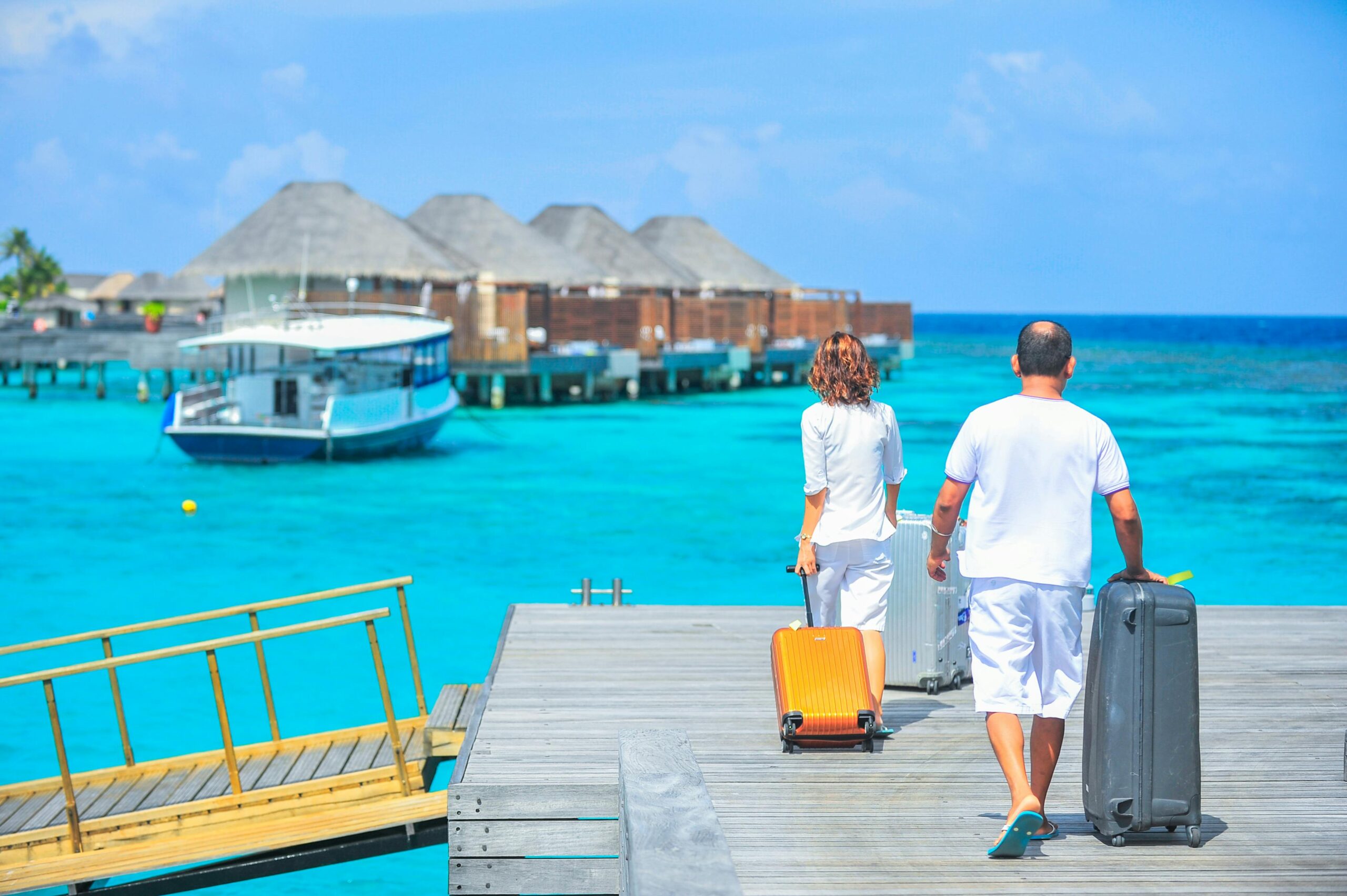It never used to be like this.
There was a time when, as a boutique urban hotel, Caribbean retreat, beach resort, or Mom & Pop motel – you could market yourself effectively with basic advertising solutions and depend on “the season” to meet your annual revenue goals. Like a rejuvenating tide that replenished your property’s viability as an independent business – you could anticipate when inquiries for availability would begin to accrue, regulars would make their advance reservations, and new guests would reach out enthusiastically about their first trip.
That era is over. At least for most traditional hospitality venues.
We live in an on-demand world of instant gratification, where travel planning has become second nature – a capability provided by the unequivocal conveniences of Online Travel Agencies.
“OTA’s” have become ubiquitous – so much so that upwardly mobile and eager travelers with discretionary income utilize these platforms incessantly. We revel in the limitlessly available options when it comes to planning that trip abroad, or that weekend getaway…
Kayak.com, Booking.com, Expedia.com, Hotels.com, Trivago.com, Tripadvisor.com, Travelocity.com – these titans of “DIY” travel planning have all but eliminated the need to directly interact with airlines, hotels, rental car agencies, or any other form of travel service provider. In less than an hour, an individual can plan an entire trip abroad to their fantasy destination – laying out an itinerary that includes flights, transportation, accommodations, dining, drinking, things to do, and even local guides or friends for hire.
We live in a miraculous digital era in which TripAdvisor has launched an AI Trip Builder, and i’d be lying through my teeth if I told you it’s nothing short of exceptional.
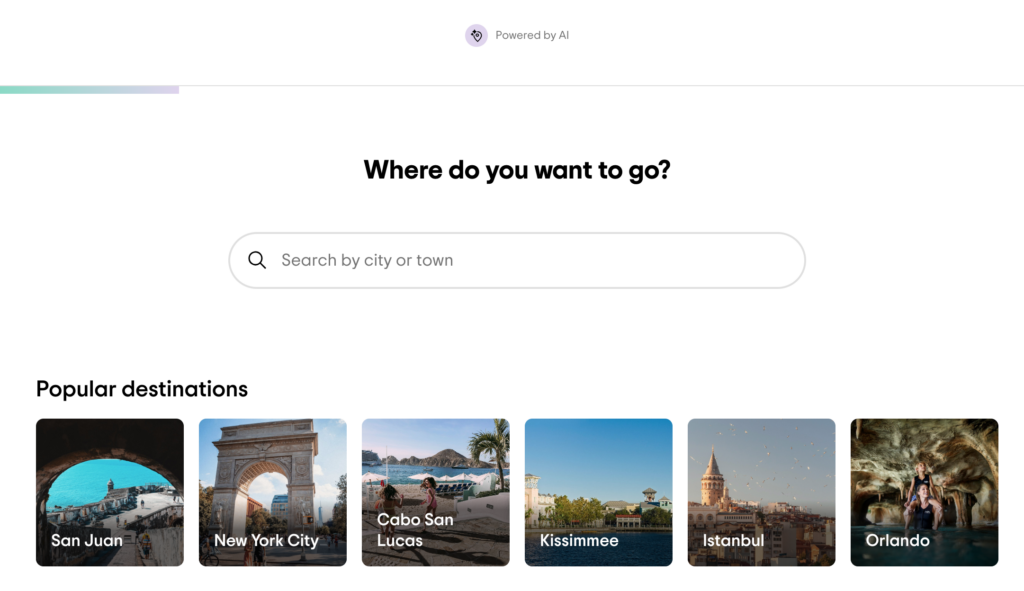
You can even ask Gemini or ChatGPT to plan your trip, and they’ll actually do a damn good job.
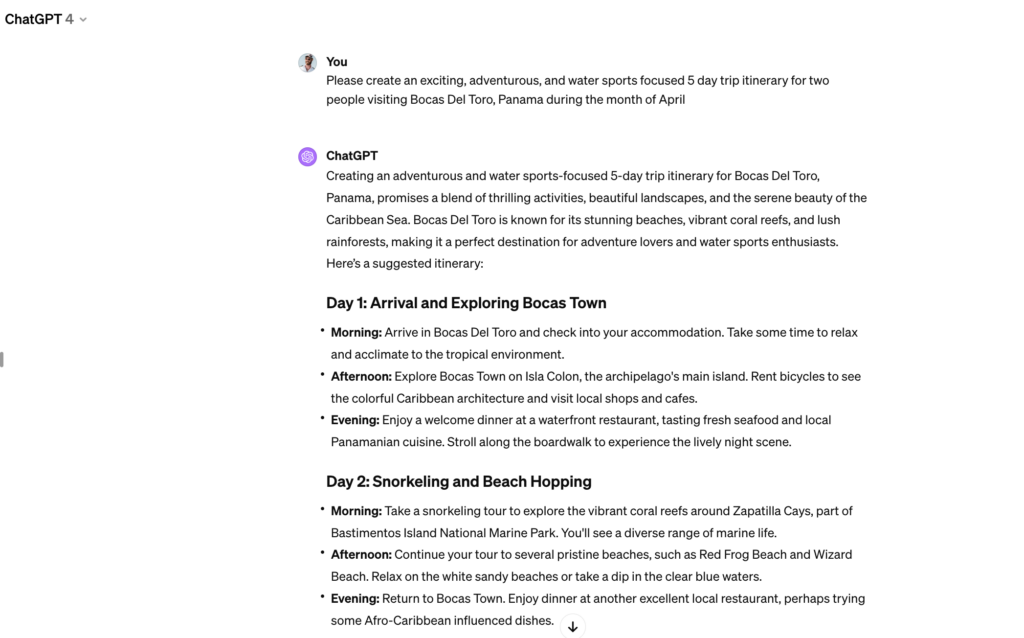
That dream trip to Chiang Mai, Thailand? Laid out for you instantly, in a day by day itinerary.
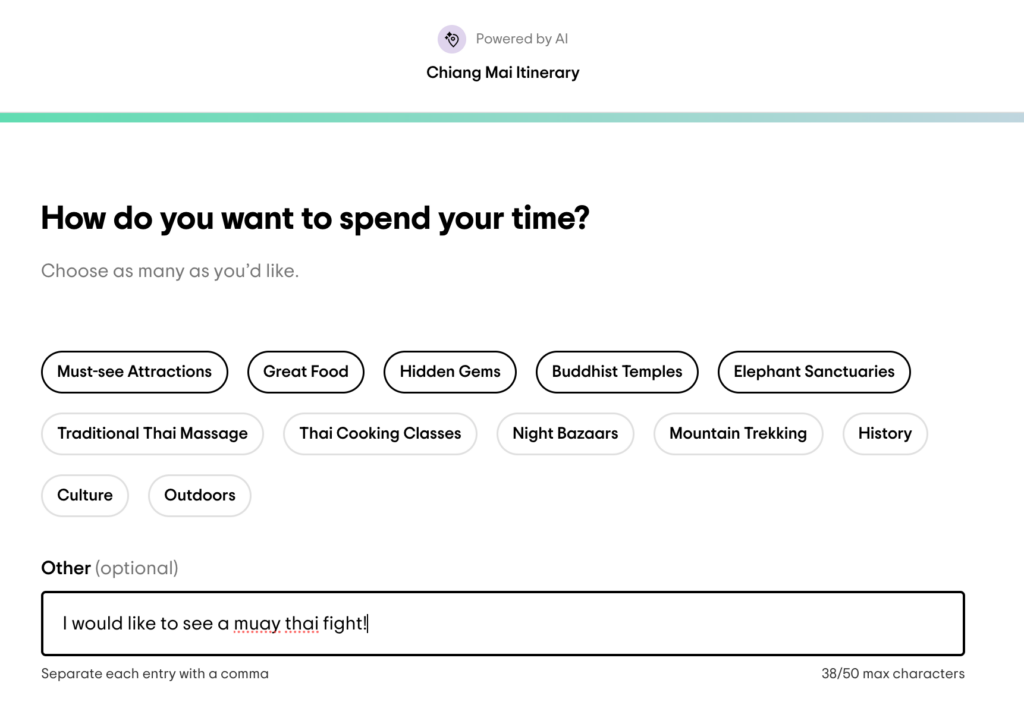
Need a set of hotel recommendations in Bocas Del Toro? No problem.
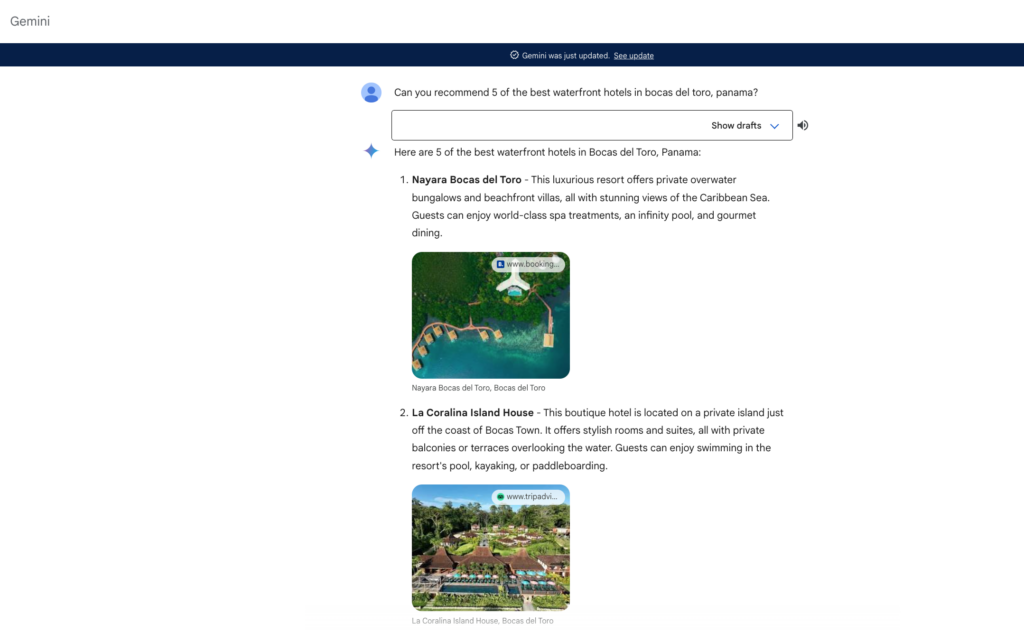
Looking for that luxury condo in Vail to impress your affluent (and mildly arrogant) friends? Easy.
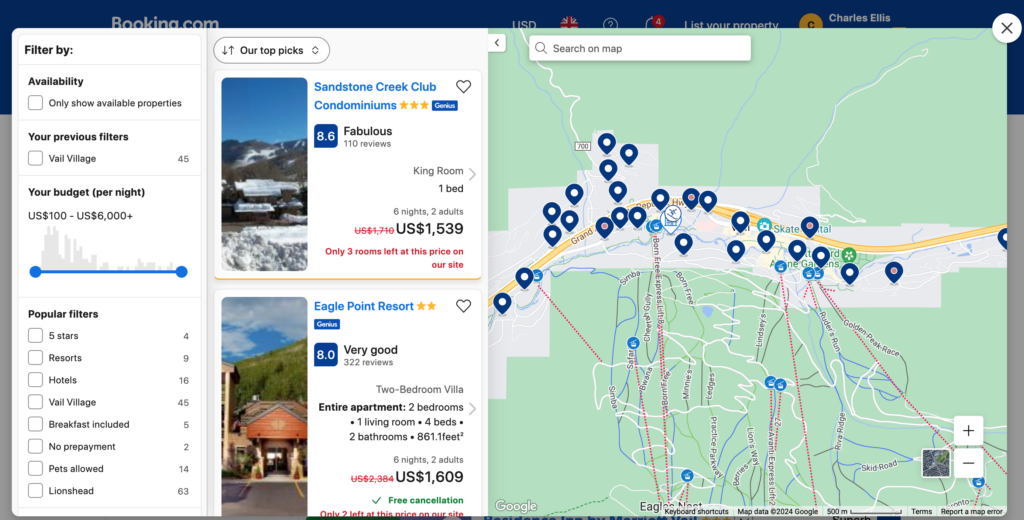
Your flight got canceled and you need a last minute hotel stay? Hotel Tonight will knock that out right quick.
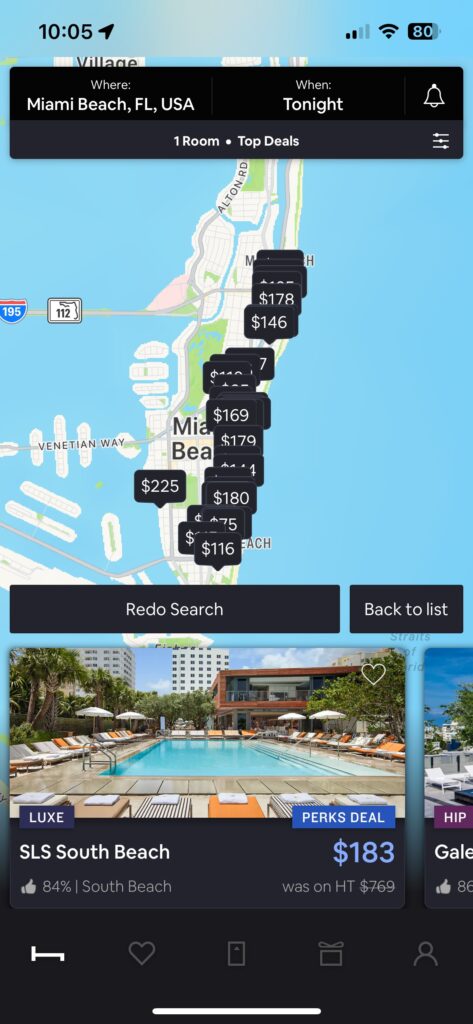
All of this is amazing – if you’re a consumer. If you’re a hotel owner or marketer? Welcome to the goddamn jungle. Navigating the hyper competitive digital landscape that is astoundingly oversaturated by OTAs requires you to understand the nebulously ambiguous travel planning sessions which your audience will undoubtedly execute before making a reservation as part of their itinerary. It also requires you to develop a web presence that is seamlessly integrated with reservation applications, accessible on mobile devices, and popularly received on over a dozen websites where consumers can and will describe their experience at your property, in detail (particularly that dirty towel that housekeeping left in the bathroom by accident). I’ll save the discussion about the impact of AirBnB and VRBO on the hospitality industry for another time.
A Bit of Truth
Let me first say, before I explore several nuances of hotel marketing and advertising “lessons learned” over the past decade – that I’ve studied the brilliance of local marketers like Darren Shaw, David Mihm, Andrew Shotland, Rand Fishkin, and Mike Blumenthal. I’ve worked with national hotel franchise brands, independent hotels, and resorts all over the world. Over the past 20 years, I witnessed the “travel boom” absolutely explode – including the rise of travel blogging (which has become travel vlogging) and travel influencers (which didn’t really exist until Instagram became omnipresent). The product of this experience is that i’ve witnessed and been directly affected by a bewildering transformation in consumer travel planning behavior and hotel marketing and advertising services.
The rapid evolution of the internet over the past two decades enabled people not only to discover new destinations, but also to learn from the experiences of others who went before them. Social media flooded people with images of exotic destinations and enabled the “bucket list” generation to drive themselves into debt traveling the world – because, apparently, documenting experiences on social media and making everyone aware of how awesome your life is carries more validation than investing in a secure financial future.
…where i’m going with this…is that successful travel marketing is about conveying “the experience” of being “there”. Photography, videography, experiential reviews, endorsements, and media attention of all sorts has become absolutely crucial. And that’s just the validation aspect of the marketing spectrum, which leads me to the point I originally set out to make…
If you are to succeed in marketing and advertising a hotel, resort, or retreat – you must leverage these elements seamlessly:
- An immersive, professional, compelling, and memorable website experience
- Integration with a booking engine that works effectively on mobile devices
- A broad reaching presence on OTAs such as Booking.com, Expedia.com, and TripAdvisor.com
- An ad strategy to promote your property on OTAs, Google, and Social Media
- A mechanism or process to acquire reviews at scale
- A marketing management solution that enables the creation of content assets
- A deep understanding of seasonality, your audience, and customer service
If that sounds like a sisyphean effort, outside of all the other responsibilities which must be handled as a hospitality professional, you’re not mistaken. Marketing and advertising is usually one of the last priorities hotel or resort General Managers worry about on a daily basis (at least in my experience) – but it is often the principal concern when business is slow, or the volume of negative reviews begins to erupt, or a travel vlogger skewers your property in front of an audience of 2,000,000 subscribers.
But there is a solution. As much as the burden of competing against OTAs for presence in competitive markets remains excruciating – hotel, resort, and retreat owners do have a myriad of resources available to catalyze business development. These are a few of the most valuable marketing opportunities and strategies i’ve leveraged when it comes to ensuring your hotel, resort, or retreat stands out in a sea of competition.
Google Business Profile Optimization
There is no shortage of resources when it comes to learning about and leveraging Google Business Profile Optimization. Having witnessed the evolution of Google’s local products (remember the disaster of Google+ Local?), I can tell you without a doubt that leveraging your Google Business Profile as comprehensively as possible is pivotal in engaging audiences conducting destination research, or validating their decision to stay at your property. As i’ve written about before, I am an enormous fan of WhiteSpark’s software and services. Darren Shaw’s team has created an exceptional resource for hotel, resort, and retreat owners to streamline (and simplify) the Google Business Profile Optimization process.
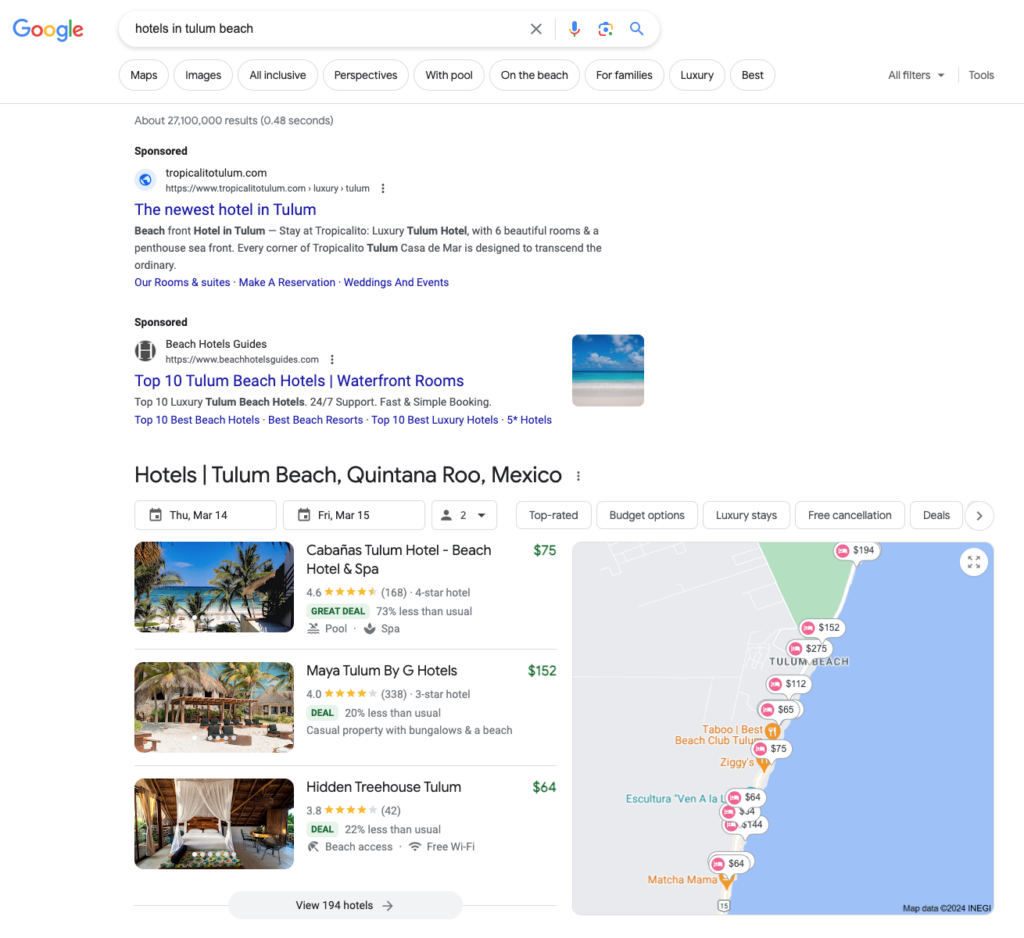
As you set out to create the perfect Google Business Profile for your property, it’s important you take the time to learn about the local search ranking factors. It’s a wildly complicated segment of the broader digital marketing landscape, but there are few investments of time more productive than understanding how the local search ecosystem works. These are some of my favorite resources about Local SEO, and leveraging GBP effectively:
- https://whitespark.ca/local-search-ecosystem/
- https://whitespark.ca/google-business-profile-guide/
- https://www.davidmihm.com/local-mobile
- https://www.davidmihm.com/local-search-ranking-factors
TripAdvisor Profile Optimization
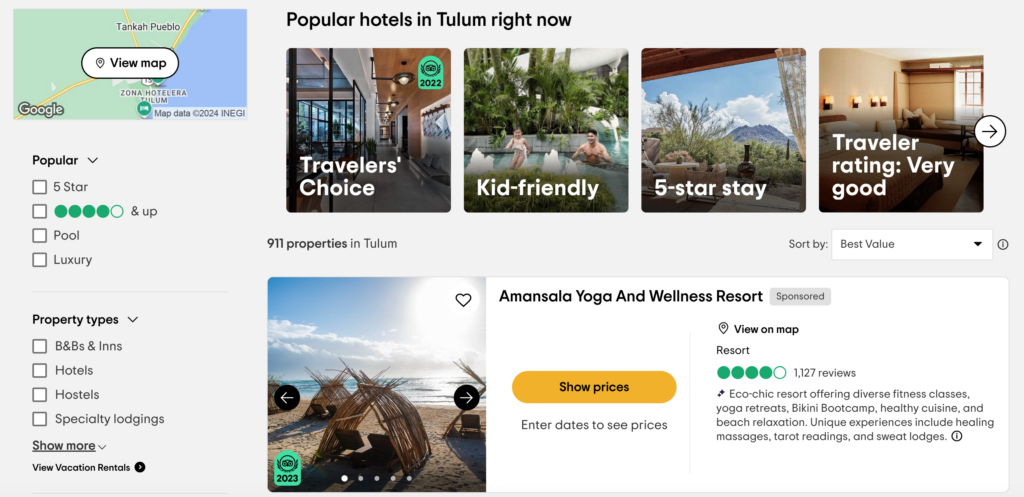
Love it or hate it – TripAdvisor is one of the most trafficked websites in the world. SEMRush estimates it is one of the top 500 websites online today. TripAdvisor is, without question, one of the most crucial platforms for hotels, resorts, retreats, restaurants, and tour operators to utilize thoroughly and consistently – and amazingly enough – there are several nuances to optimizing your TripAdvisor profile.
Of course you need to ensure that you’ve claimed your listing, leveraged a compelling business description, utilized all of the “detail” fields they provide, and included a variety of photos/videos of your business. Cultivation of reviews are critical – and TripAdvisor provides a variety of resources to help you do this. Still – there are tactics which go far beyond the “basics”. These are the most compelling resources i’ve found which summarize the process succinctly:
- https://medium.com/@treatmarketing/tripadvisor-profile-101-how-to-optimise-for-the-algorithm-2023-358c8178d47d
- https://boldist.co/marketing-strategy/5-tips-to-optimize-your-tripadvisor-listing/
I strongly recommend investing in TripAdvisor advertising, as well. They provide a myriad of opportunities to position your property prominently, when audiences are conducting destination research. Needless to say, TripAdvisor’s advertising products are exceptionally effective – if your hotel, resort, or retreat operates in a region where there are dozens of competitors – Ads on TripAdvisor can 100% provide the advantage to generating more reservations and building brand authority.
Google Ads :: Performance Max Campaigns
If you’ve ventured into the world of Google Hotel Ads – you’ve likely learned that competing against OTAs is nearly impossible (that was, after all, the inspiration for this post). The shear volume of the investment made by Booking.com, Expedia.com, and all the other OTAs is staggering, and it has become nearly impossible to compete with them. There was a time when Google Hotel Ads were extremely effective, particularly in markets where volume was strong and rivals hadn’t quite figured out the system. Today, you need to be part rocket scientist to get started with Google Hotel Ads – or you need to have a very expensive agency on retainer who is effectively a Google Hotel Ads configuration and campaign specialist. Bottom line – if you’re an independent hotel, getting started with Google Hotel Ads is a royal pain in the ass – even worse than that Karen who blindsided your GM about the cleanliness of your pool area.
…but there is a solution. All hope is not lost, and you are not destined to rely extensively on search network ad campaigns (with exact match keywords please!) to protect your brand and engage the shrinking audience which still uses Google Search and Google Maps to plan their trips. Google Ads Performance Max campaigns provide hotels, resorts, and retreats with an unparalleled opportunity to engage audiences with compelling brand collateral when they are conducting destination research with intent to book accommodations. How does that work? Let me explain.
Performance Max allows you to create “asset groups” which consist of images, videos, text ad descriptions/headlines, sitelinks, and other ad extensions – while leveraging a variety of “search themes” and “audience signals”.
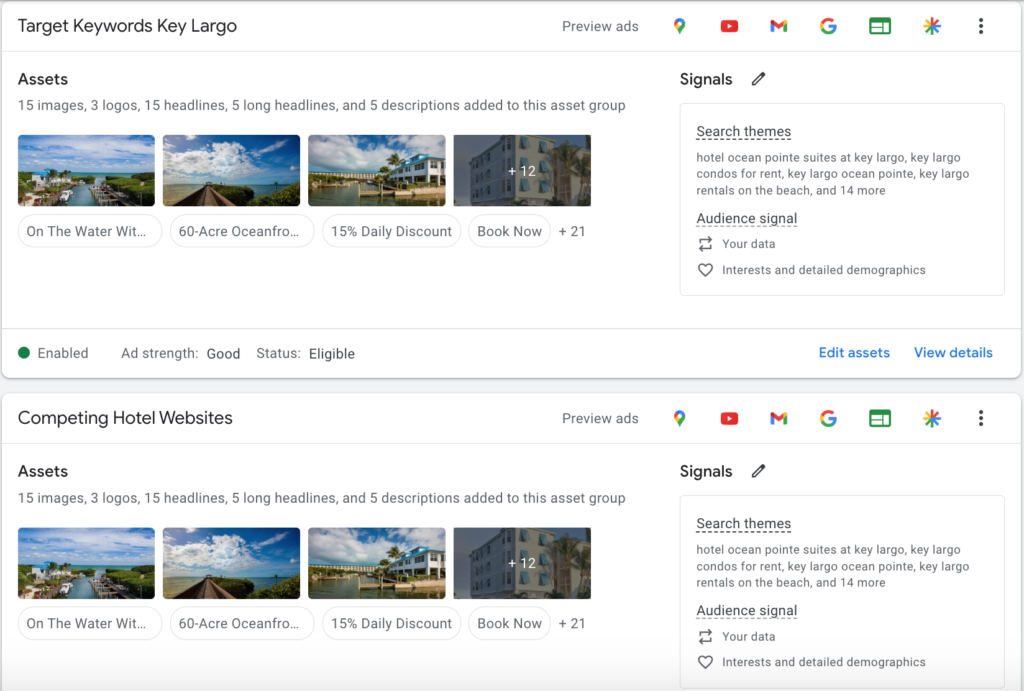
This is, effectively, your opportunity to give Google as much information as possible about the audience you want to engage. The In-Market and Affinity audiences available in the dashboard were specifically engineered to assist hospitality entities serve ads to specific demographics which are likely to book a stay, in a particular place, at a particular time (looking at you Beachbound Travelers). I have no doubt that Google will expand in-market and affinity audiences in the months and years ahead – because it’s so damn effective.
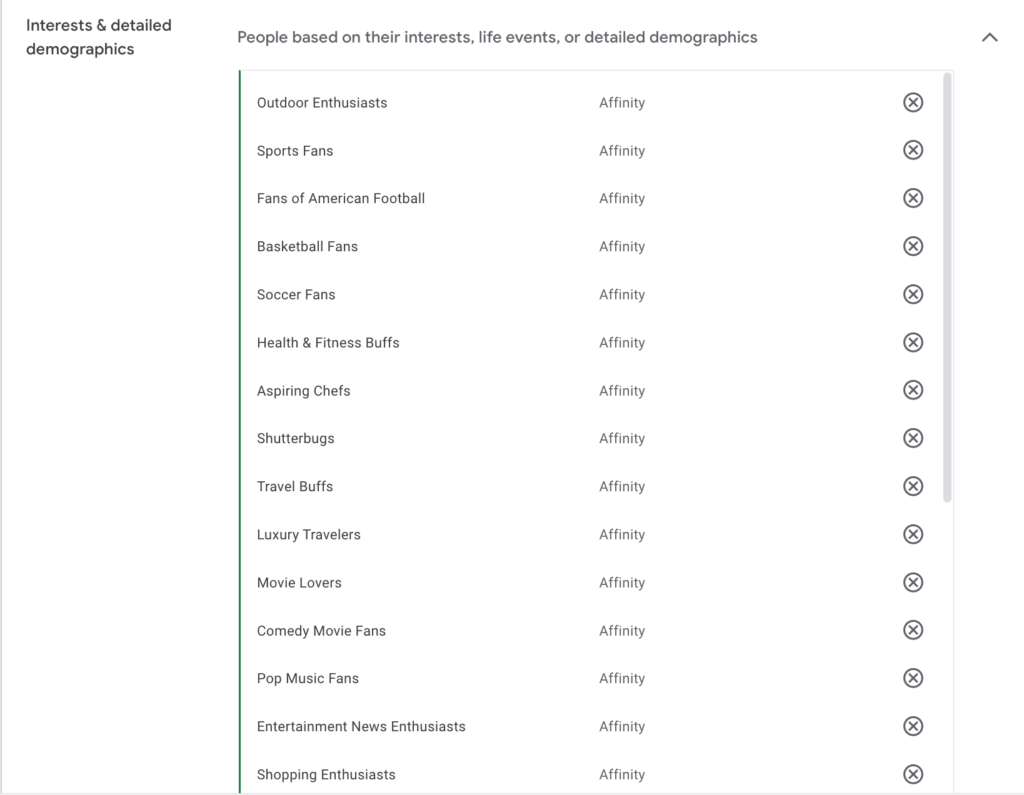
One of the best features, in my opinion, of Performance Max campaigns is that you can simultaneously serve ads on Search Network, Display Network, YouTube, Gmail, Google Maps, and the Discovery Network (whatever that is). The opportunity to serve highly targeted, vibrant, compelling ads across all of these networks – to specific audiences – is a game changer. I can tell you from experience that Performance Max campaigns, if crafted studiously, can generate profound brand exposure while generating phone calls and revenue for your property.
Adroll : The Preferred Hotel and Resort Remarketing Platform
There is no shortage of remarketing platforms to choose from, and each have their distinctive advantages when it comes to stalking people around the internet with compelling advertisements. Between Google, Criteo, and Taboola – you would be hard pressed to find display advertising solutions that are more invasive or effective.
…and then there’s Adroll. This platform is by far one of the most user friendly and well adapted technologies for small business owners to engage audiences across a broad array of display networks. Adroll provides the opportunity to leverage impactful, compelling, and manageable remarketing campaigns without the massive investment typically needed to use enterprise platforms.
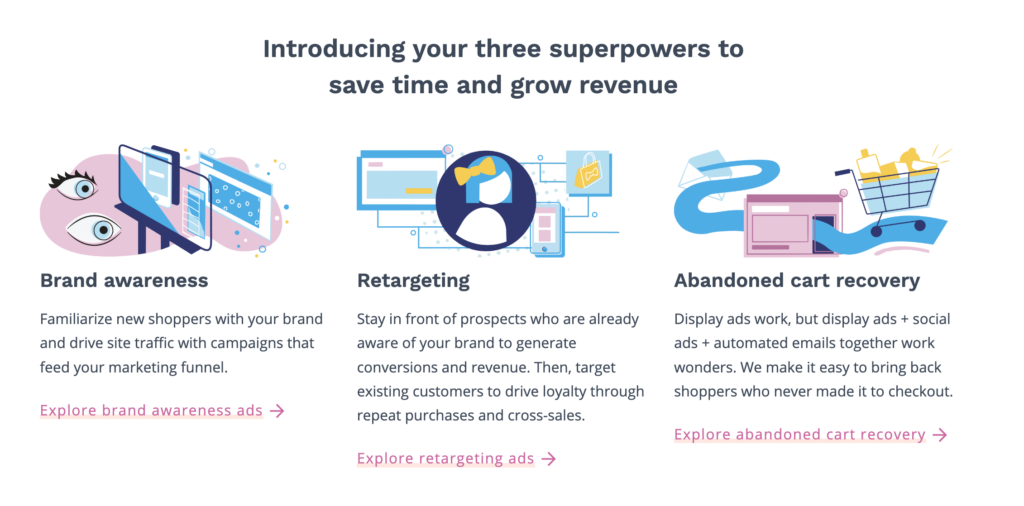
One of the features I find most compelling about Adroll is that you can leverage customer lists, while serving your ad collateral on traditional display advertising networks and Facebook – simultaneously. Creating campaigns is very straight forward, and does not require the integration of excessively complex tracking scripts.
While the reach of Adroll, and sophistication of the platform, isn’t nearly as expansive as Criteo, it is certainly an affordable and practical option for independent resorts, hotels, and retreats looking to build brand exposure in crowded markets. Remarketing can often be that persistent reminder that your property has a distinctive value proposition, or incentive, compared to larger rivals (with deeper pockets) in the region.
Adroll also provides decent customer support, which to me, is a big deal. Most advertising platforms leave you to fend for yourself, occasionally providing vague help guides and antiquated customer forums. Being able to chat, and actually speak with a support rep who is proficient with their technology goes a long way when implementation becomes more nuanced than originally expected.
So if you find yourself in a position to use remarketing to improve brand exposure, generate supplemental bookings, and position incentives – here’s a few tips I’ve learned after running these campaigns the past 12 years:
- Develop banners which promote an offer, or incentive, that was not available when the prospect didn’t complete the action you wanted them. Advertising collateral that offers morning more than a logo, image, and button simply don’t get the job done.
- Include videos as part of your remarketing efforts. Short and sweet. Compelling. Practical. Videos are profoundly more engaging than display banners and can compound the effectiveness of your campaign more than any other asset.
- Be specific with your audiences – don’t remarket to everyone who reaches your homepage. Serve ads to audiences that engaged deep within your site. In the context of hospitality marketing – if people looked at your “rooms” page(s), or explored your “amenities” – those are lists you should be building and serving to.
- Drive users who click your ads to landing pages that are focused and compelling. Simply bringing people back to your website’s homepage will not motivate them to take action. Think about the process carefully – remarketing is a second chance to engage your target audience – and likely your last.
Influencer Collaborations – Specifically, YouTubers
I have mixed feelings when it comes to recommending influencer collaborations. These initiatives can be extremely valuable, because it provides an opportunity to showcase your hotel, resort, or retreat in a compelling format. Travel influencers, in particular, lend themselves to a first person story telling format which is relatable and inspires audiences to have the “I want to do that too” realization. If your property happens to be in an exotic destination, or has a unique amenity, there are rarely better opportunities to glorify them.

At the same time – YouTubers can be really arrogant and demanding. In my experience working with them, they project this entitlement which is obnoxiously pervasive in their attitude towards business. Many of them feel empowered by their audience – validated by unknown masses of people who celebrate their lifestyles (or are envious of it) and therefore, they feel deserving of their accolade. This primadonna mentality is irritating, and the larger the audience, the worse it usually is. Now don’t get me wrong, I’m not referring to the entirety of the travel blogging industry here – just a large portion of it. The good news is, you can tell fairly quickly who you’re dealing with, and if it’s worth it.
For the most part, as a hotel, resort, or retreat marketer – the goal is to engage with a YouTuber who operates a channel that is specific to travel and unique lifestyle experiences. You want a showman, but not a douche bag. There are thousands upon thousands of women and men in their mid to late 20’s who are true videographers – they excel in capturing the essence of a destination. There are also family travel bloggers, senior travel bloggers, and nearly everything in between. Know your audience – and then choose a YouTuber who aligns with them.
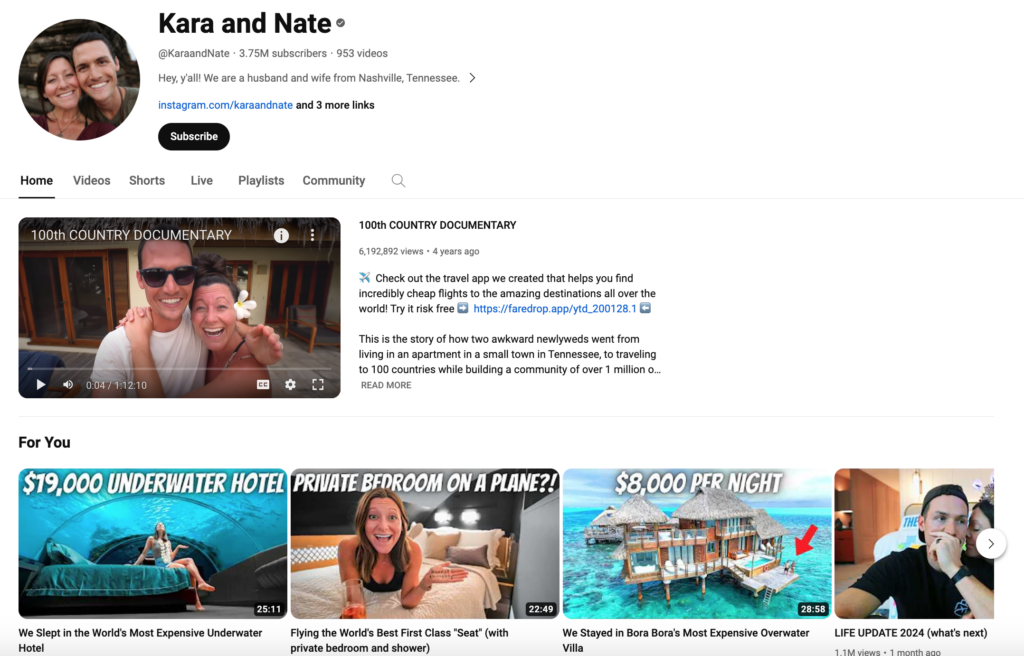
What to watch out for: Chad. Karen. Any YouTuber who puts themselves in front of the camera more than the place they are exploring. You don’t want a video of someone talking to the camera the entire time they’re on property. You want someone in the frame, sure, but that someone should be interacting with a tour guide, the staff, or showcasing the experience of being on property.
If the YouTuber you’re considering has a channel that is littered with thumbnails of bikini ass shots, that’s likely not going to provide the impact you’re looking for. Seek out genuine personalities who take a journalistic approach and you’ll be better served for it.
What does it cost to work with a YouTuber? Great question. You will be expected to provide one or two nights accommodation, likely some form of transportation, and a lifestyle incentive (like dining options, access to amenities, or some sort of touristic experience). Most accomplished YouTubers will want a pay out, as well, for their time, creating the content, and then promoting it. You can expect this to cost in the range of $2500 plus accommodations to over $10,000 for a YouTuber with an audience of 500k or more.
Most established travel specialized YouTubers are looking for a free ride and compensation. They will likely have a media kit which presents options, but keep in mind they all have egos, which you will have to mitigate tactfully. The best thing to do is create a list of 50 travel bloggers which fit your niche and don’t appear to be total assholes, then commence your outreach diplomatically to explore opportunities with them. You want the total package – because a compelling feature on your property is something you can leverage for years to come.
As much as I hate to recommend putting money in the hands of social media morons – it’s part of the game when it comes to hospitality marketing and advertising. Don’t sell yourself short investing in Instagram influencers – I still see them as mostly overpriced and ineffective when it comes to property promotion. YouTube all the way, because video beats photo, every single day.
Content Marketing in Support of Destination Research
One of the tried and true strategies to position a hospitality brand effectively, in organic results, is to engage audiences when they are actively researching a destination. Affluent audiences and bargain backpackers alike conduct an extensive “discovery” process when they are considering a trip to a new destination…and that research inevitably leads to a bit of Googling…often with common questions. This creates an exceptional opportunity for hospitality brands to be smart about creating content which is useful, practical, and insightful. And it’s never been easier.
One of the most common questions i’m asked about content marketing is “how do I generate compelling blog article topics my audience will actually care about?”. The answer is simple: create resources that can be used to answer questions. If that sounds easy – it’s because it is! You don’t need to look any further than Google to understand the common questions your audience wants to know about a destination.
Let’s say for example you’re a hotel operator in Caye Caulker, Belize. You’ve done your job in creating a compelling website, you’ve created your profile on TripAdvisor, you’ve synched your booking engine with Booking.com and Expedia.com – and maybe you’ve even invested in a Performance Max campaign to engage audiences who are researching the “ins and outs” of visiting your island paradise. Now it’s time to develop content resources which will aid potential visitors in discovering your hotel, before the dozens of others. The best place to start? Google. What are some of the most common questions people ask about Caye Caulker? Look no further than the PAAs.
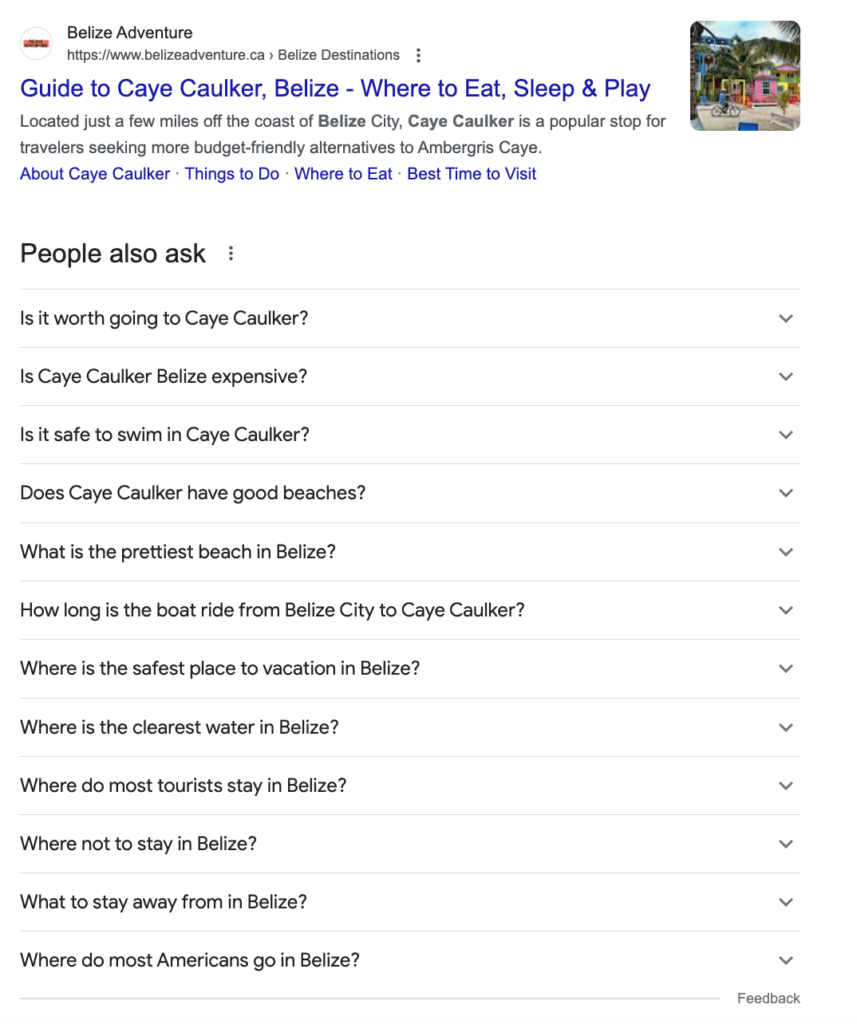
Creating detailed, compelling, and practical content assets which directly answer those questions will ultimately help you to rank in those coveted positions. The trick is to include the exact questions as your title tag, URL, and header tag. Then answer that question succinctly in the first paragraph of the content asset you create. Do this ten, twenty, thirty times – and you’ve established a content portfolio which enables Google to realize you just might be an authority on all things Caye Caulker related.
“But i’m a terrible writer. And English is not my first language. How do I do this?”. ChatGPT to the rescue! By creating a compelling, clear, and succinct prompt – you can generate this content quickly, efficiently, and at scale. Using AI to generate response to PAAs is practical and easy, provided you take the time to learn effective AI prompt creation techniques. You can also use ChatGPT to translate your content into multiple languages, which is epic.
Aside from generating as many PAAs as humanly possible about your destination, you should also consider developing more elaborate content assets, such as:
- The 10 Best Things to do in [Destination goes here] – [Current year] Edition
- The Ultimate [Destination goes here] Restaurant Guide
- 10 Bars in [Destination goes here] You Should Visit During Your Trip
- These 5 Tours in [Destination goes here] Are Not to Be Missed
- A Locals Guide to [Destination goes here]
- How to Maximize 5 days in [Destination goes here]
Get the idea? Great. This is an aspect of hotel and resort marketing that most hospitality marketers fail to execute. If you can make content development a priority, and use AI to create robust, useful content assets – you’ll be ahead of 90% of rivals in your region.
Being Smart About Acquiring Reviews
There is simply nothing more impactful than reviews when it comes to inspiring a prospect’s decision to stay at or avoid your property. The amalgamation of reviews your hotel, resort, or retreat will develop over time is testament to the quality of the experience you provide. You can either participate in the process, or allow it to happen naturally. The more proactive you are about soliciting feedback, requesting reviews, and encouraging your guests to describe (in detail) what they loved about their stay – the more business you will generate over time. It’s that simple. Most resorts, hotels, and retreats absolutely suck when it comes to cultivating a company culture that is “all about” asking for reviews. It is the single most important thing you can train your staff to do – to be ambassadors for your brand, and to recognize when a guest is having a great time.
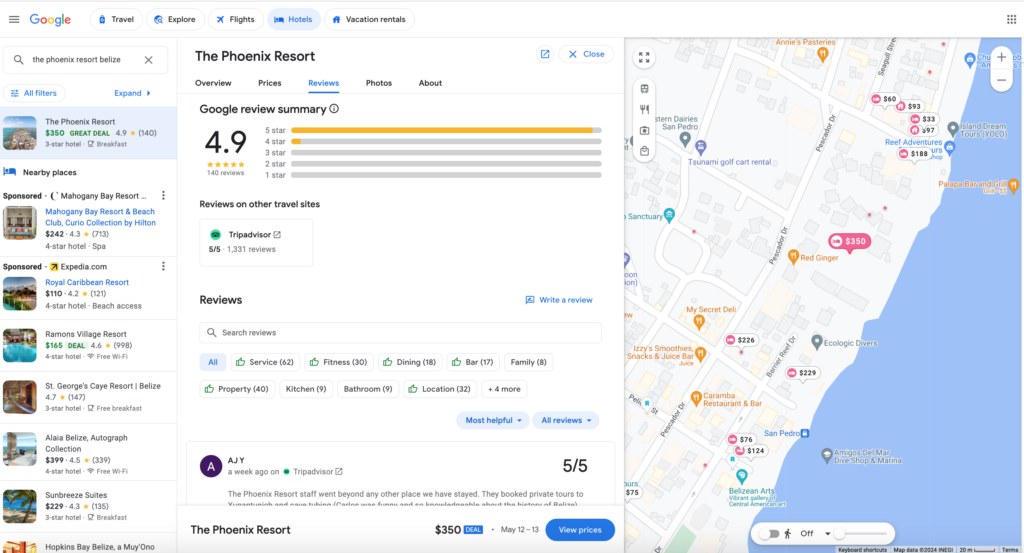
When is the best time to ask for reviews? At the bar. At dinner. At the pool. In the lobby. All the damn time. If you’re a responsible GM, and you’ve done a solid job educating your staff about the importance of customer service – then you’re likely already interacting with your guests in a meaningful way. Reviews should not be an afterthought – a small reminder at checkout – or a passive email which gets sent along with a final invoice. When people leave their hospitality experience – they go right back to their own world, and leave their experience behind. There is never a better opportunity to ask for a review than when your guests are “in the thick of it” – enjoying themselves, excited about their time at your property, or connecting with staff in a meaningful way. Don’t get me wrong, most people will write a review regardless of your interaction – particularly negative reviews – because people are awful. But…what you need to cultivate are those positive experiences. The more relatable they are, the stronger the testament will be that staying at your property is worth the time and money.
Review management is somewhat of a different endeavor, aside from collecting reviews, but it remains absolutely crucial. Take the time to respond to reviews meaningfully and mindfully. If someone leaves a positive review – thank them for it. Show your appreciation. If someone skewers you on Google or TripAdvisor – respond to it tactfully and diplomatically – don’t allow it to fester…because the world is seeing that..and judging your reaction. A business owner who shows concern for the well being of their guests is more impactful today than it has ever been in the past twenty years – particularly in an age where expectations are less likely to be met, because social media skews the perspective on what a destination should be.
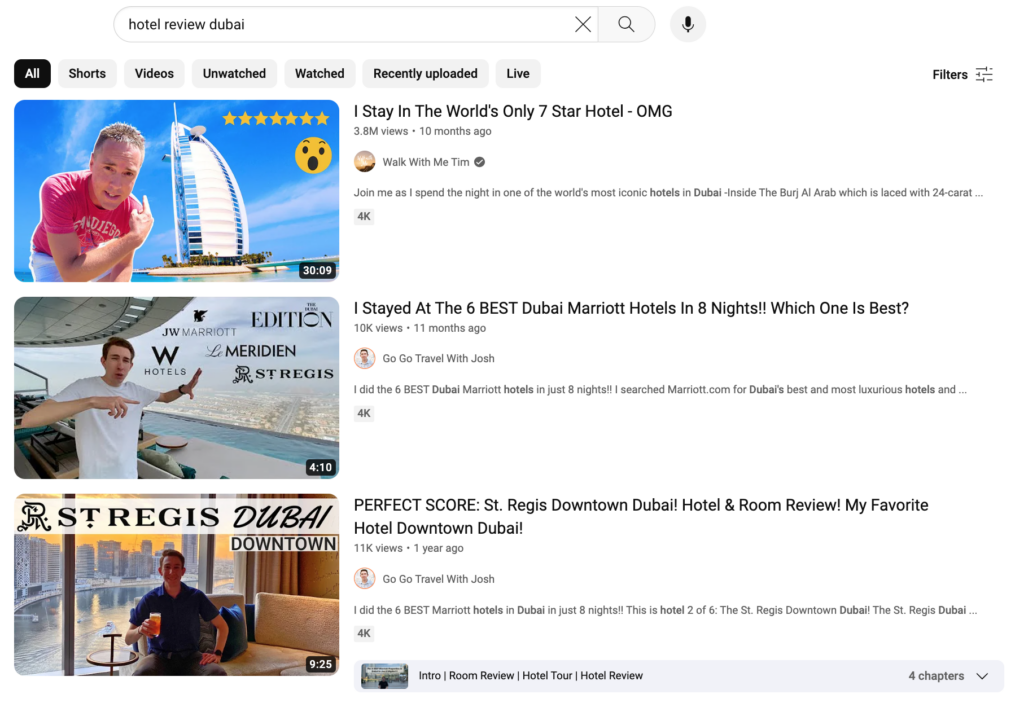
Bottom line – make review cultivation a priority and it will become one of the leading sources of new business for your hotel, resort, or retreat.
One quick side note – signage makes a difference. Be sure to include signage in rooms, dining areas, recreational areas, and by reception for your preferred review platform (TripAdvisor and Google work best). Some hotels, resorts, and retreats i’ve worked with even keep a dedicated computer ready for guests to use, with an incentive available to write a review, right then and there (free drinks, apparel, credit, discounts on tours or transportation, etc).
Closing thoughts on Hotel and Resort Marketing in 2024
If you’ve made it this far in the post – i’m impressed. You are clearly passionate about hotel and resort marketing, like me. So let me tell you this – successful hotel and resort marketing strategies, particularly those that work in hyper competitive regions, depend on your ability to think critically and deeply understand your audience. If you’re relying on your location alone, or perhaps a distinctive amenity – it’s not enough. Travelers in the current era (and economic climate) carefully research their destinations, itineraries, and accommodations before booking a trip. You can take advantage of that, by being accessible and compelling during that research process. The more diligent you are about applying the hotel and resort marketing strategies i’ve detailed in this post, the more effective your hotel, resort, or retreat will be in generating new business.
Hospitality marketing is one of the most difficult endeavors to pursue in the broader hospitality industry, largely because it requires you to understand humanity while thinning creatively. That’s no small task. There are countless resources available to educate yourself about this complicated topic, but at the end of the day – action takes precedence over academia. Learn as much as you can about hotel and resort marketing strategies, and take the time to experiment. Remember – if you’re in hospitality, you’re in the business of customer service and providing an experience that is memorable. Make it a priority to connect with your audience meaningfully through compelling advertising and marketing strategies, and you’ll vastly exceed what the majority of your competitors are doing. I can promise you that.
